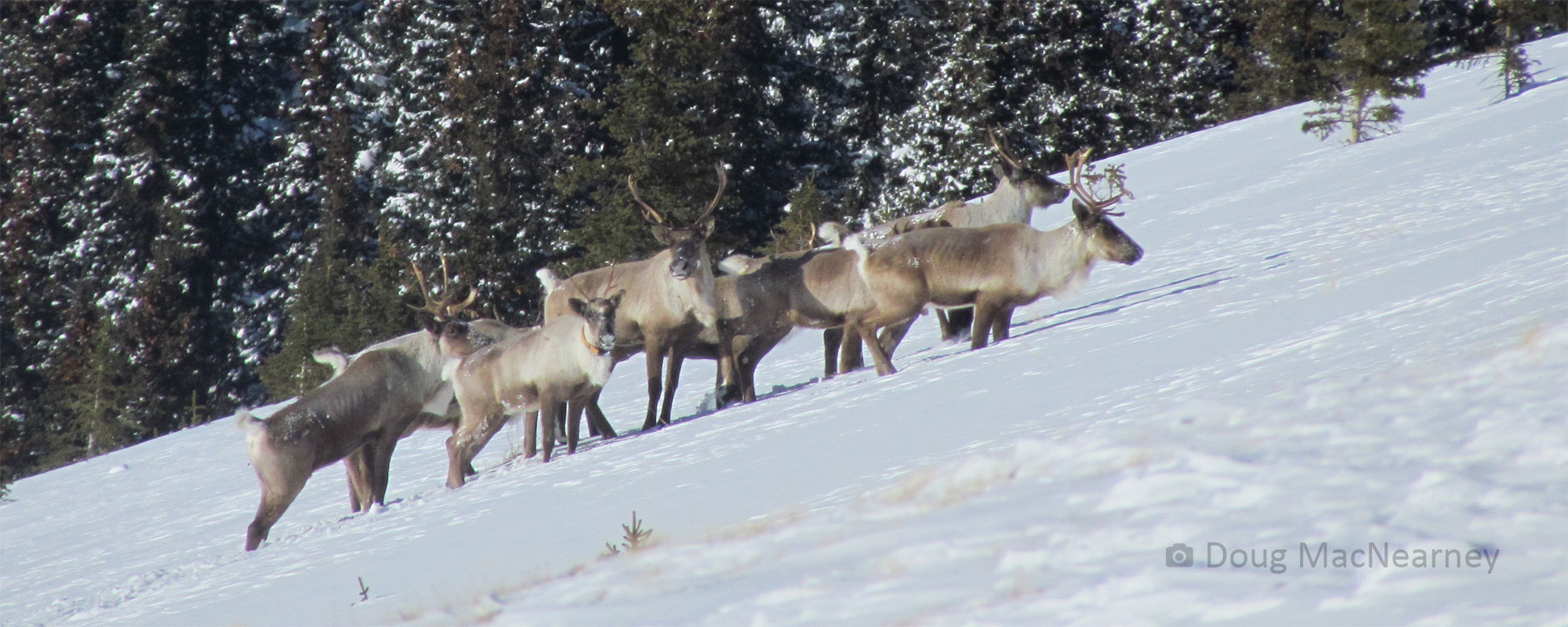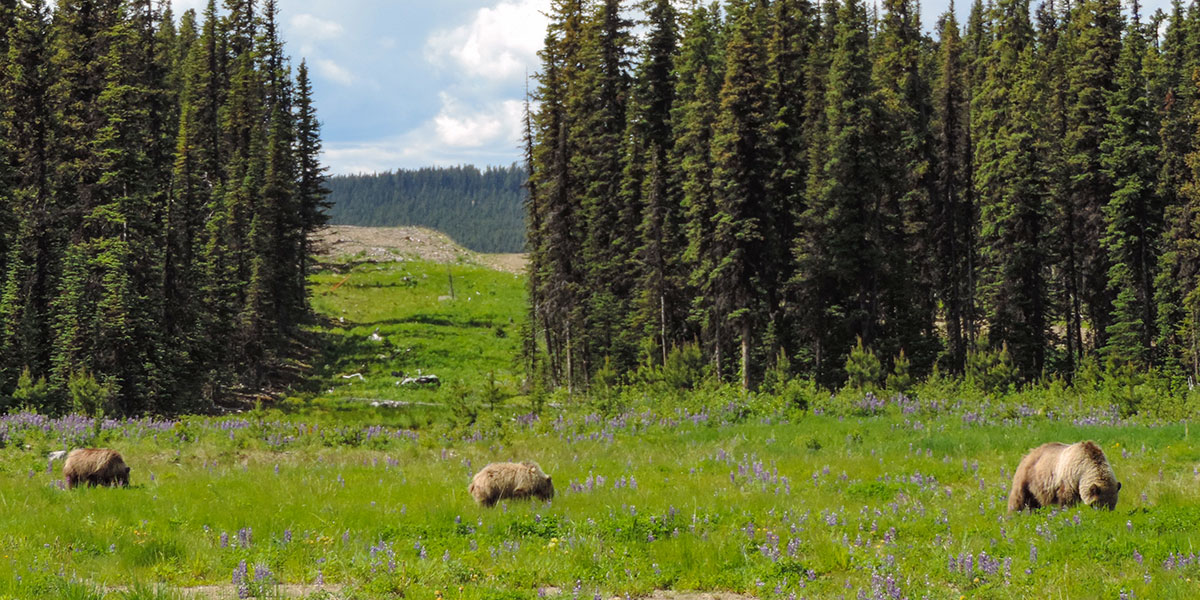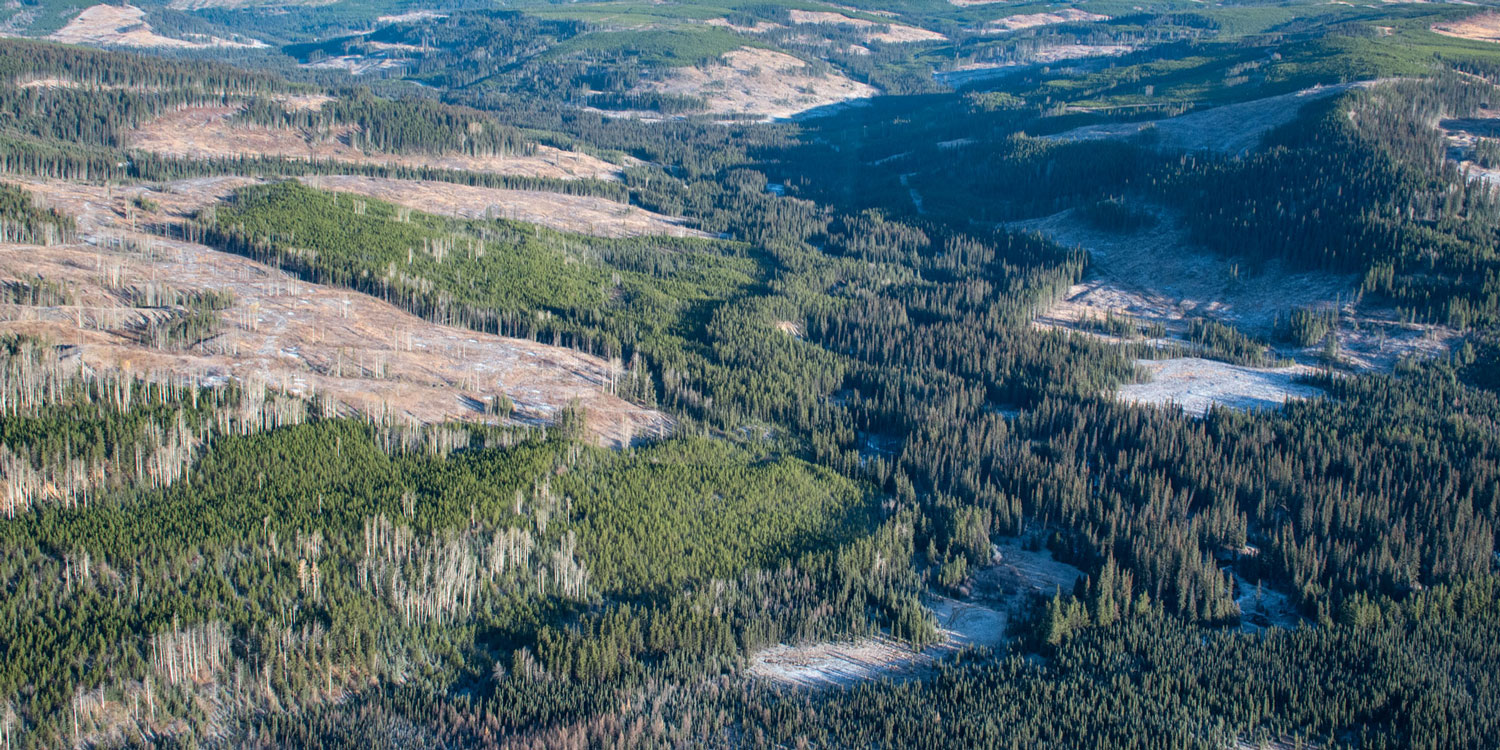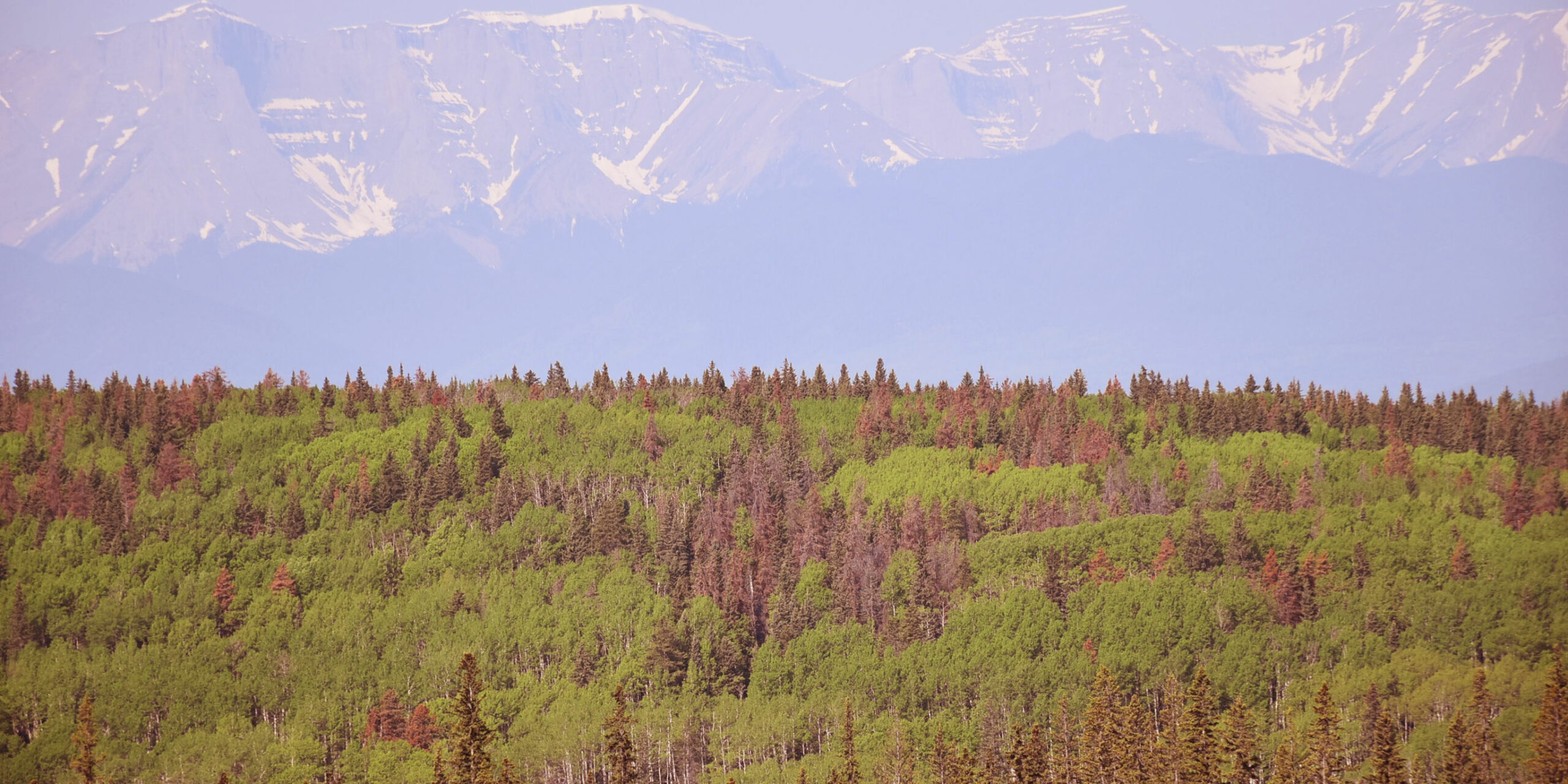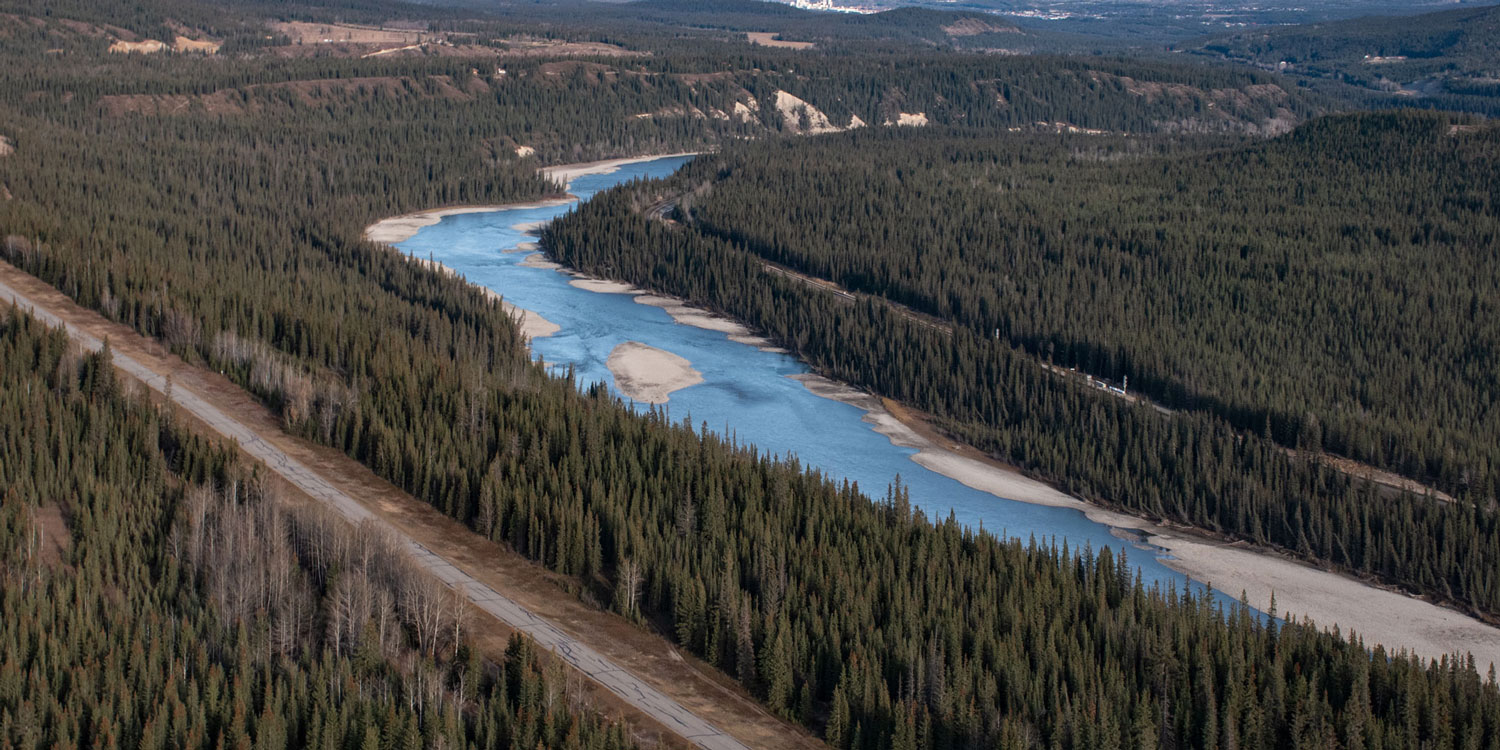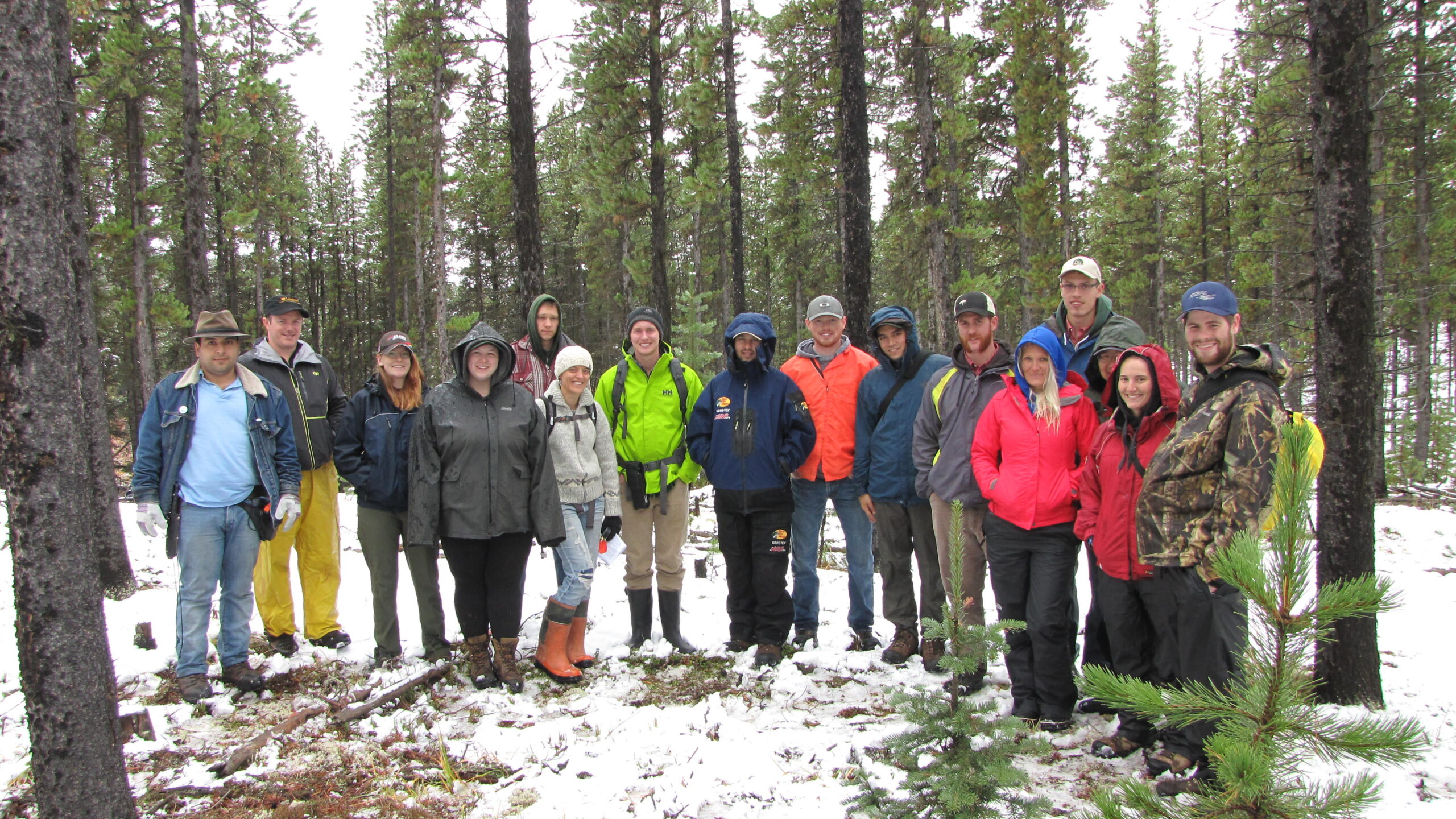
fRI Research had not one, but two visits from student groups last week. Lakeland College from Vermillion, Alberta and Lakehead University from Thunder Bay, Ontario came to learn about our programs and partners.
Lakeland College environmental sciences students got a presentation about the Grizzly Bear Program from wildlife research biologist Anja Sorensen, who happens to be an alumna of their program.
She started with a summary of our research on grizzly bear habitat, reproduction and behavior and how resource development is affecting bears. Anja explained that greater human access is linked to greater bear mortality, but that bears are adapting to use new features like seismic lines as corridors to move, hunt and forage.
“The most interesting thing for me was to hear that seismic lines are more complicated,” said Lakeland student Breann Sutton. “I thought they were just bad for bears, but now I know that they also open up new growth and can be useful too.”
After talking about the fieldwork involved – heli-darting bears and backpacking trips into remote areas to set up lures – a hand shot up.
“How do I get to do that too?”
Later in the week, they came back for a presentation by Doug MacNearney about our Caribou Program. The students heard again about seismic lines, but the effect on caribou is different: what can be useful for predators might not be so good for the prey.
Unfortunately, caribou tend to respond poorly to disturbance, which makes the Caribou Program at fRI Research so essential. Partnerships between industry, government and academia will have to continue to restore old seismic lines, better connect high quality caribou habitat and keep improving management practice.



Meanwhile, the Lakehead University students had a full day with Doug and fellow researcher Karine Pigeon. In the morning, Doug and Karine gave presentations about our programs and were peppered by questions from students. Masters student Benjamin Ong, who is conducting experiments with drones, was eager to explore how that new technology might be used by fRI Research and our partners to reduce costs and improve data collection.
In the afternoon, Karine and Doug took the group out to a lichen site north of Hinton to see caribou habitat. As the snow fell in the forest, they talked about how the caribou are able to locate lichen through up to a meter of snow. A truck roaring past on the highway gave them a chance to mention fRI Research initiatives like the Caribou Patrol, which aims to reduce collisions with caribou.
The group wrapped up their visit to Hinton with our longstanding partner, West Fraser. The students got a presentation on the forest management plan and operations from Management Forester Aaron Jones. Afterwards, they were treated to a full tour of the nearby sawmill.
fRI Research is proud to host these events with universities and colleges to show off the value of our programs and partnerships and inspire the next generation of researchers, policy makers and industry leaders.

